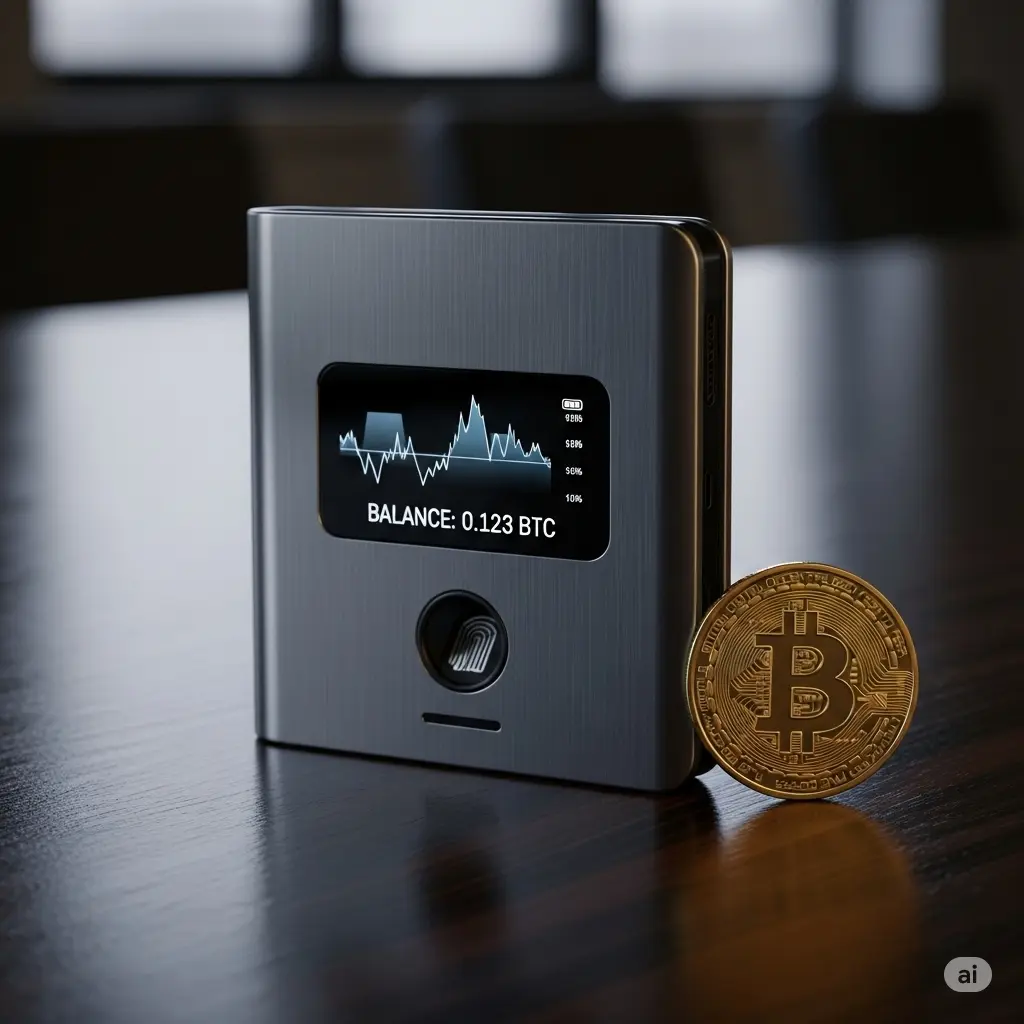Secure Crypto Wallet Made for Long-Term Digital Wealth
In the rapidly evolving crypto landscape, creating and safeguarding digital wealth has never been more critical. As global adoption surges and Web3 innovations redefine how we store and transact value, having a Secure Crypto Wallet becomes more than optional it’s foundational. Whether you’re a newbie investor or a seasoned trader keeping an eye on Global Crypto Sports news, choosing the right wallet today can protect your holdings from hacks, scams, and costly mistakes.
In this comprehensive guide, we’ll dive into the essentials of secure crypto wallets covering cold vs. hot wallets, hardware solutions, mobile accessibility, and best practices for long-term security. Geared toward both beginners and intermediate crypto enthusiasts, this article gives clear, actionable advice to build and maintain digital wealth confidently.

What Is a Secure Crypto Wallet?
A Secure Crypto Wallet is a tool either software or hardware that stores your private keys securely, enabling you to send and receive cryptocurrencies. Its primary job? Keep your funds safe while giving access when needed.
Key Terms and Definitions
Before jumping in, let’s clarify some vital crypto-related concepts:
| Term | Definition |
|---|---|
| Blockchain | A decentralized ledger of transactions. Every block records multiple transactions, and blocks are chained, ensuring transparency and tamper resistance. |
| DeFi (Decentralized Finance) | The next-gen internet is built on decentralized protocols. It offers user control over data, identity, and value transfer. |
| Web3 | The next-gen internet built on decentralized protocols. It offers user control over data, identity, and value transfer. |
| Private Key vs. Public Key | Public key is like your bank account number (shareable); the private key is your vault key never share it. |
| Wallet Types | Cold wallet, hot wallet, hardware wallet, mobile wallet, and decentralized wallet each have pros and cons around convenience and security. |
Types of Secure Crypto Wallets
Hot Wallets (Software Wallets)
- Definition: Wallets connected to the internet, mobile, desktop, or web‑based.
- Examples: MetaMask, Trust Wallet, Binance Wallet.
- Pros:
- Convenient access for trading or DeFi.
- Easy onboarding and user-friendly interfaces.
- Cons:
- Vulnerable to hacks, phishing, device compromise.
- Requires careful security hygiene.
Cold Wallets (Offline Wallets)
- Definition: Wallets not connected to the internet, ideal for long-term storage.
- Examples: Paper wallets, hardware wallets.
- Pros:
- Golden standard for crypto wallet security.
- Immune to online hacks.
- Cons:
- Physical damage or loss risk.
- Less convenient for frequent transactions.
Hardware Wallets
- Definition: Specialized devices (USB-like) that sign transactions offline.
- Popular Examples: Ledger Nano X, Ledger Nano S, Trezor Model T.
- Pros:
- High level of security and best crypto wallet 2025 contender.
- Easy backup and recovery via seed phrases.
- Cons:
- Costly compared to software wallets.
- Must purchase from reputable sources to avoid tampering.
Mobile Wallets
- Definition: Apps installed on smartphones.
- Examples: Trust Wallet, Coinomi, Coinbase Wallet.
- Pros:
- Portability & quick access to DeFi and NFTs.
- User-friendly.
- Cons:
- Still categorized as hot wallets with related risks.
- Smartphone malware, phishing threats.
Decentralized Wallets (Non‑Custodial)
- Definition: Wallets where users control private keys (not managed by exchanges).
- Pros:
- Full ownership and control.
- Aligned with Web3 ethos.
- Cons:
- You alone hold responsibility for backup loss, loss of funds.
Quick Breakdown: Wallet Types
| Wallet Type | Internet Connection? | Best Use Case | Risk Level |
|---|---|---|---|
| Hot Wallet | Yes | Frequent trading/DeFi/NFTs | Moderate to High |
| Cold Wallet | No | Long-term holding | Low (online) |
| Hardware Wallet | No | Ultimate security + usability | Low (if done right) |
| Mobile Wallet | Yes | On-the-go usage | Moderate to High |
| Decentralized | Depends | Full control & privacy | Depends on use case |
Why Choose a Secure Crypto Wallet for Long‑Term Digital Wealth?
Benefits
- Protects Digital Wealth
A secure wallet ensures your long-term digital wealth remains safe against theft, hacks, and scams. - Peace of Mind
Knowing you have control over your private keys reduces anxiety especially when tracking Global Crypto Sports updates or DeFi developments. - Prepares for the Future
As blockchain and Web3 platforms grow, secure wallets offer seamless compatibility with emerging DeFi tools, NFTs, and interoperable ecosystems. - Strong Recovery Mechanisms
Most hardware wallets and well‑designed wallets support wallet backup via seed phrases, reducing the risk of losing access permanently.
Potential Risks
- Physical Loss or Damage (cold or hardware wallet)
- Malware or Phishing Attacks (hot or mobile wallet)
- Loss of Seed Phrase (non-custodial wallet liability)
- Purchasing from Scammers (tampered hardware device)
- Complacency: using weak PINs, not updating firmware, or neglecting proper storage of backup phrases.

Real‑World Examples & Case Studies
Case Study 1: The Lost Ledger
Scenario: A crypto investor stored 10 BTC on a hardware wallet and Safu‑wrapped it with a strong PIN and proper air‑gapped setup.
Outcome: When the device malfunctioned, they retrieved funds easily using the seed phrase on a new device illustrates the power of proper wallet backup.
Case Study 2: Hot Wallet Hack
Scenario: A beginner trader used a mobile wallet, clicked a phishing link in a sports‑crypto group related to Global Crypto Sports, and lost funds.
Lesson Learned: Even with low amounts, without sufficient crypto wallet security, hot wallets are low-hanging fruit for scammers.
Case Study 3: Decentralized Wallet Success
Scenario: A Web3 enthusiast used MetaMask (hot, non‑custodial), stored the seed phrase offline, and activated hardware wallet integration for high‑value DeFi staking.
Takeaway: Combining decentralized control with hardware wallet strength provides a balanced, secure, and user-friendly setup.
Pros & Cons of Different Wallet Types
Cold Wallet (Hardware / Paper)
Pros
- Excellent security
- No internet exposure
- Ideal for long-term holding
Cons
- Risk of physical loss
- Less convenient for daily use
Hot Wallet (Software / Mobile)
Pros
- Instant access
- Great for DeFi, NFTs, trading
Cons
- Online attack surface
- Requires constant vigilance
Hardware Wallets (Best of Both)
Pros
- Offline signing
- High security
- Backup via seed phrases
Cons
- Higher upfront cost
- Risk of purchase tampering if not from official channels
Actionable Advice: Beginners & Intermediate Investors
Step‑by‑Step for Beginners
- Start with a reputable hardware wallet Ledger or Trezor are industry leaders.
- Set up securely:
- Initialize offline.
- Record seed phrase on high-quality medium (metal, not paper).
- Keep backups in geographically separated secure locations.
- Familiarize yourself with wallet interfaces learn how to receive, send, and check funds.
- Use a hot wallet for small, active amounts only move what you need to trade or stake.
- Implement security best practices:
- Never share the seed phrase.
- Beware of phishing URLs.
- Keep firmware and software up to date.
- Use strong, unique passwords and consider 2FA where available.
Tips for Intermediate Crypto Users
- Layer Security: Use a hardware wallet as primary; hot wallet for day‑to‑day use.
- Segment Funds: Only keep small amounts in hot wallets; the majority goes into cold storage.
- Diversify Wallet Types: Try both mobile and desktop wallets, but secure each properly.
- Use Multisig (Multiple Signatures) for large holdings when possible.
- Monitor Trends on Global Crypto Sports Platforms to stay updated on wallet firmware updates and new security threats.
- Regularly audit your wallet security setup at least quarterly.
FAQ About Secure Crypto Wallets
1. What is the best crypto wallet in 2025 for long‑term storage?
For long-term storage, hardware wallets like Ledger Nano X and Trezor Model T are considered among the best crypto wallets 2025 due to their offline signing features and strong security protocols.
2. Cold wallet vs. hot wallet: which should I use?
Use a cold wallet (hardware or paper) for long-term storage and a hot wallet for small, frequent transactions like DeFi or sports‑crypto news updates.
3. What is a decentralized wallet and why does it matter?
A decentralized wallet is non‑custodial meaning only you control the keys. It aligns with Web3 principles by giving users full control, but also full responsibility for security.
4. How do I back up my crypto wallet safely?
Write your seed phrase on a durable, fireproof material. Store multiple copies in discreet, geographically separate locations. Avoid storing digital copies to prevent hacking.
5. What are common security mistakes with crypto wallets?
Mistakes include clicking phishing links, storing seed phrases digitally, buying hardware wallets from unofficial sellers, and using outdated firmware.
6. Can I use a mobile wallet securely?
Yes, use one from a reputable provider, update it regularly, enable app-level security like PIN or biometric lock, and keep only small amounts for daily use.
7. How do I stay informed about wallet security?
Follow trusted news sources (such as Global Crypto Sports), official wallet manufacturer blogs, and community forums. Stay updated on emerging threats and firmware patches.
Actionable Checklists
Beginner’s Secure Crypto Wallet Setup
- Buy a hardware wallet from the official site.
- Set up the device offline.
- Record the seed phrase on a secure medium.
- Keep backup in safe locations.
- Use a hot wallet for small, operational funds.
- Practice basic security hygiene.
Intermediate User Security Audit
- Confirm all wallets have updated firmware/software.
- Check backup (seed phrase recovery) works.
- Review transaction history for anomalies.
- Reassess how much value is sitting in hot wallets and move excess to cold storage.
- Subscribe to Global Crypto Sports or wallet dev newsletters for security updates.
Conclusion & Call‑to‑Action
In 2025’s dynamic cryptocurrency landscape, a Secure Crypto Wallet isn’t just a convenience; it’s the backbone of preserving your long-term digital wealth. By understanding hot vs. cold storage, using hardware wallets for the bulk of your holdings, and maintaining vigilance against emerging threats, you can confidently ride the DeFi and Web3 wave.
Take Action Today:
- Invest Wisely: Choose a hardware wallet from a trusted brand.
- Backup Properly: Store your seed phrase securely and redundantly.
- Stay Informed: Follow Global Crypto Sports and reputable news sources for the latest in wallet security and crypto innovations.
- Share This Guide: Help fellow crypto enthusiasts build safe, future-ready portfolios.
Protect your crypto journey secure your wealth, start small, scale smart, and never stop learning. Happy investing!